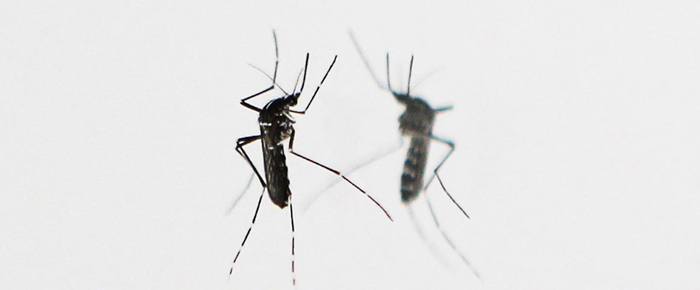
By Dr. Peter Kadile
What is the Zika Virus?
Zika virus is a type of virus similar yellow fever, West Nile, dengue and Japanese encephalitis viruses. People are infected by a mosquito bite, specifically from an Aedes species mosquito. The virus is mostly in South and Central America, but the Aedes species mosquito have now been found in parts of California. Mosquitoes that bite an infected person can spread it when it bites another victim. The virus has been found in urine and saliva of infected people, but there hasn’t been proof that it can spread when in contact with those fluids. Although rare, the virus can be sexually transmitted.
Where did this current outbreak begin?
It was first detected in May 2015 in Brazil. It is suspected that the virus may have arrived in South America during the 2014 World Cup Games when millions of people came to Brazil.
What are the symptoms?
Not everyone that gets bit by an infected mosquito will develop symptoms. It typically takes three to 12 days for symptoms to develop after a mosquito bite. About 20% of those infected may progress to symptoms such as fever, rash, joint pain or conjunctivitis (pink eye), muscle aches and headache. The symptoms may last a few days to a week. Most people don’t require any hospitalization and death is very rare.
So if most people don’t get sick from it and it is rarely fatal, why are we so worried about it?
The World Health Organization declared the Zika virus a global health emergency because it is linked to serious birth defects, specifically microcephaly (babies born with small heads and partial brain development). It is suspected that babies born with microcephaly in Brazil came from mothers infected with the Zika virus. There is no treatment for microcephaly. Some children with microcephaly can develop normal intelligence, but for others with the birth defect, it may cause developmental disabilities, difficulties with balance, speech problems, seizures and possibly death.
How is Zika treated?
Presently there is no vaccine or medicine for the virus. Treatment is directed toward the symptoms of the infection. An infected person should rest, drink plenty of fluids and take over the counter medicine like acetaminophen for pain and fever.
How is Zika diagnosed?
It is difficult to diagnose because its symptoms are very similar to other viral illnesses. Only a few labs can perform the tests that can detect Zika in the blood.
So am I at risk in Palm Springs?
There have been six confirmed cases in California since 2013. All the cases were found in people that contracted the virus when they were traveling abroad. There have been no instances of Zika being transmitted within California. Pregnant women should avoid travelling to areas where infected mosquitoes are prevalent.











































